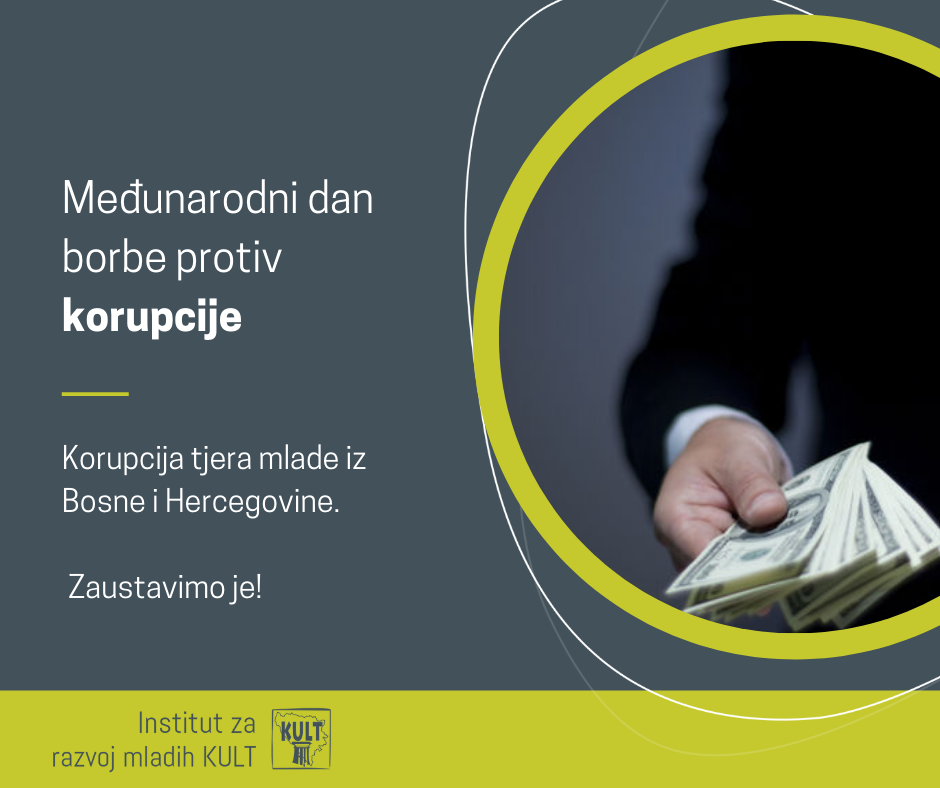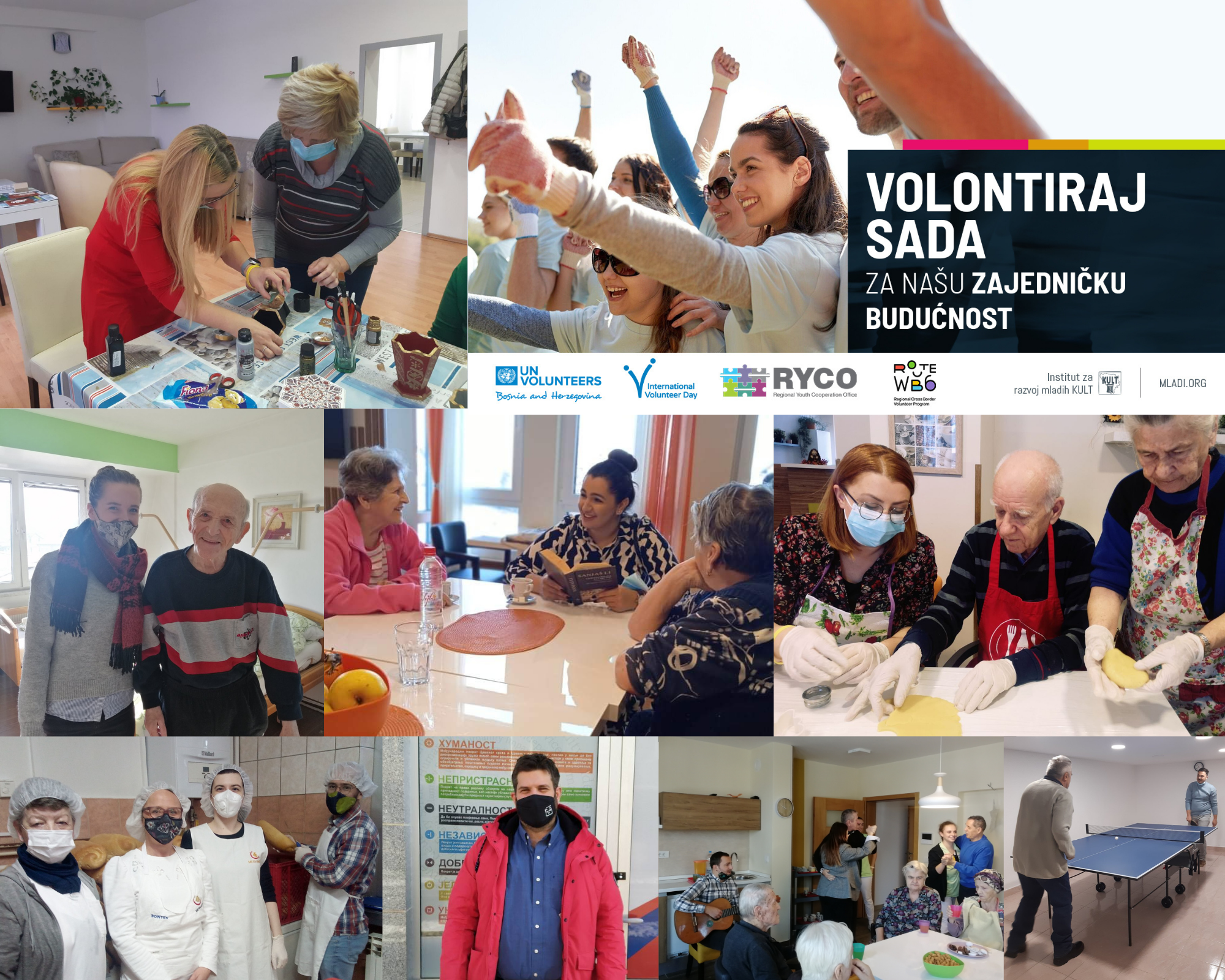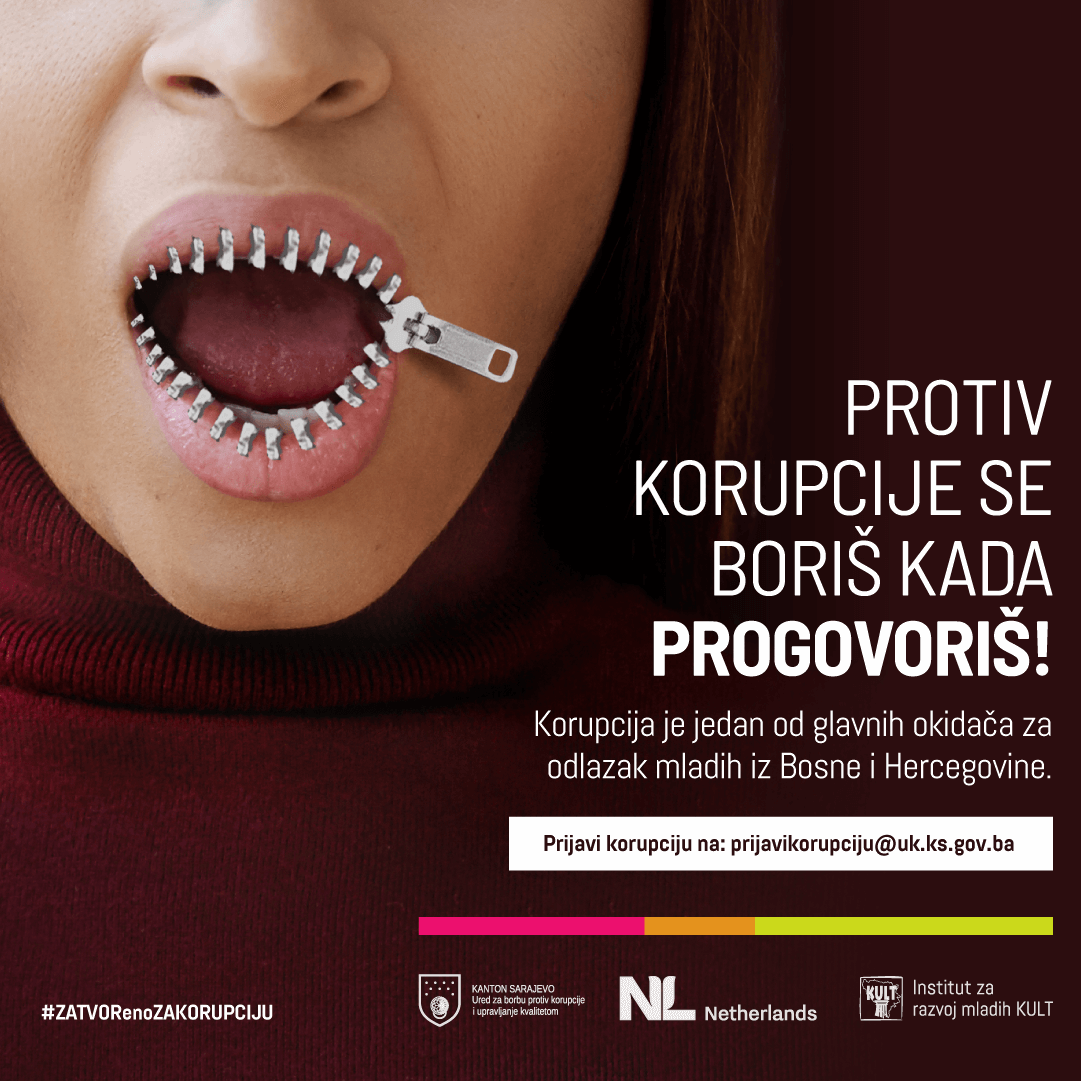On this day, thirteen years ago, the United Nations adopted the Convention against Corruption in Mexico, with December 9 being marked as International Anti-Corruption Day in the world ever since. In the broadest sense, corruption is any form of abuse of power for personal or group gain, whether in the public or private sector. Transparency International‘s 2020 Corruption Perceptions Index ranks Bosnia and Herzegovina among countries where corruption is worsening rapidly. BiH dropped 11 place, currently ranking as 111th out of 180 countries with 35 points (on a 0-100 scale). This is Bosnia and Herzegovina’s lowest rating since 2012, when the country ranked 72 with 42 points.
International Anti-Corruption Day is a perfect opportunity to reflect on young people’s views on this topic and their experience with different types of corrupt behaviors, so we can shed light on the way corruption impacts the quality of their lives and their prospects in general.
The results of a survey on the position of young people in Bosnia and Herzegovina conducted by the Institute for Youth Development KULT showed that young people remain intent on leaving the country – with more than 50% planning to leave. Corruption is one of the most frequently cited reasons. Corruption is a socially corrosive phenomenon that penetrates all segments of society and has a detrimental impact on younger generations. This is clearly illustrated by the fact that corruption ranks as the fourth biggest problem for youth, after unemployment, hikes in prices and living expenses, and the economy.
Corruption is widespread in all segments of life in Bosnia and Herzegovina, especially when it comes to employment, which makes it difficult for youth to follow the typical route of finding a job after completing their education. Almost 90% of young people believe bribery in employment procedures is common practice in BiH, 60% of them believe corruption is present in the majority of cases, and the remaining 30% believe corruption does exist in this area but is not ubiquitous. Young people’s opinions vary when it comes to corruption in employment in private companies. 36.5% of youth believe that bribery for employment purposes happens in most cases, while 45.1% of respondents believe bribery is used but not commonplace. 55.8% of youth have heard of someone paying for employment, while almost 5% witnessed this form of corruption.
The results of this survey paint a very gloomy picture. Why? Because youth unwilling to participate in corruption are denied employment prospects, which compounds other problems youth are facing, and forces them to leave BiH, disillusioned.
Tackling corruption requires fundamental changes in society and relevant state mechanisms that should benefit young people. Reducing tolerance of corruption in employment requires a stronger emphasis on the implementation of the rule of law. Reforming the education system is also crucial for ensuring that transparent rules and procedures to combat corruption are actually implemented.
In the future, the Institute for Youth Development KULT, together with the Anti-Corruption and Quality Control Office of the Sarajevo Canton, with the support of the Embassy of the Kingdom of the Netherlands, will work to improve informal anti-corruption education for youth, informing young people about how they can report corruption, developing strategic documents targeting the issue of corruption, conducting research and analyzing perceptions of corruption among young people, and holding other educational events focused on informing youth about how to combat corruption.
















Leave a comment